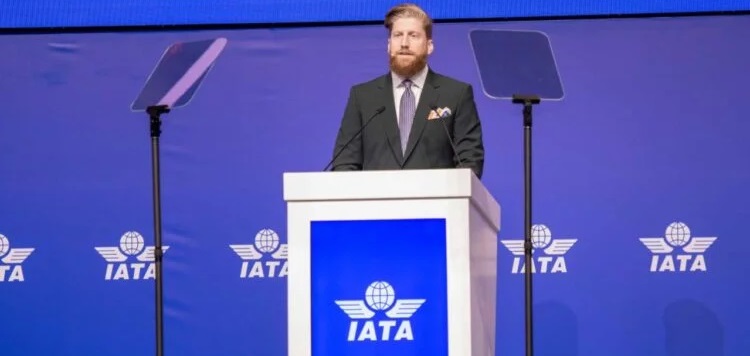
Mounting trade disputes are once again casting a shadow over the global air cargo sector, prompting the International Air Transport Association (IATA) to issue a stark warning at the opening of the 2025 World Cargo Symposium in Dubai. With the industry only recently finding its footing after the pandemic, fresh tensions, particularly between the United States and China are disrupting critical cargo flows and shaking confidence across supply chains.
Brendan Sullivan, IATA’s Global Head of Cargo, warned that escalating trade barriers are not just disrupting supply chains but also undermining confidence in the global cargo market.
“Current trade tensions are deeply concerning,” he said. “Trade drives prosperity. The more the world trades, the better off we all are. Whatever the resolution, air cargo will continue to deliver the goods people need and want.”
Sullivan said a growing cycle of political moves, including the U.S. revoking tax exemptions on certain low-value imports from China is already hurting industries that rely on fast and efficient logistics. Electronics, pharmaceuticals, and cross-border e-commerce are among the hardest hit.
In response, IATA is urging policymakers to embrace pro-trade strategies that preserve supply chain resilience. The association emphasized the importance of stable regulation, clear international frameworks, and global cooperation to keep goods moving.
Alongside trade, safety concerns dominated the symposium’s agenda, especially regarding dangerous goods like lithium batteries. Sullivan cited a worrying uptick in undeclared or misdeclared hazardous shipments, which increase the risk of serious incidents.
“We have a zero-tolerance policy for rogue shippers,” he said. “We must hold governments to that standard with strong regulations and inspections.”
IATA is calling for better enforcement of safety rules under Annex 18 of the Chicago Convention, and stressed the need for consistent training and certification across the industry.
Cargo security also came under scrutiny. Sullivan criticized the lack of coordination between states when it comes to enforcing safety protocols, particularly in response to recent cases involving incendiary items.
“We need a careful, coordinated, risk-based approach, not knee-jerk policy-making,” he said, urging nations to align their actions with Annex 17 and share intelligence more effectively.
On the digital transformation front, IATA spotlighted its ONE Record initiative, a global data-sharing standard designed to modernize and unify air cargo documentation. With a January 2026 deadline approaching, adoption is gaining traction: 72 percent of global airway bill volumes are now covered, alongside 100 IT providers and 10,000 freight forwarders.
While full government integration is still in progress, Sullivan said IATA is actively working to ensure the framework is incorporated into regulatory systems worldwide.
As the air freight industry navigates an increasingly complex global landscape, IATA’s message from Dubai was clear: air cargo is iindispensable,and safeguarding its future will require global unity, smart regulation, and collective resolve.
